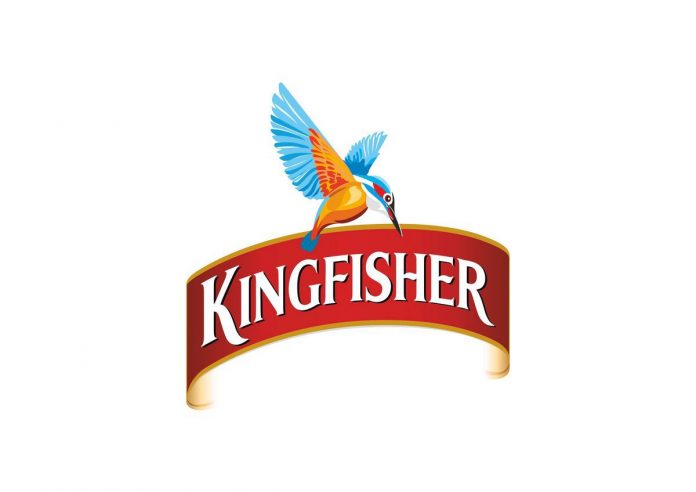This article is written by Vikash Dhaka, pursuing a Diploma in Intellectual Property, Media, and Entertainment Laws from Lawsikho.com.
Table of Contents
Introduction
Advertisements are an integral part of marketing, promoting the product in the market. Advertisement helps in increasing the sale of the product. It acts as a medium of communication to the general public at large. Since we live in a democratic country, we are blessed with the fundamental right of speech and expression under Article 19 of our Constitution. Advertisement is one such classic example of using the right of speech and expression.
In India, many provisions and laws are governing advertisements. However, there are no uniform acts or statutes which talk about all aspects of governing the advertisement together. India has a much self-regulated body for keeping the check on the advertisement such as Advertising Agencies Association of India, The Advertising Standard Council of India, Indian Newspaper Society, etc. These are non-statutory bodies whose work is to protect the consumers from fraudulent advertisements, guide the advertisers, etc.
The Securities and Exchange Board of India, Reserve Bank of India, Insurance Regulatory Development Authority of India, etc. are the statutory bodies for governing the Advertisement in their sectors. Prasar Bharati, comprising Doordarshan Television Network and All India Radio (AIR), is also a statutory body that governs the advertisement.
United Breweries Holding Limited is a multi-industry company that has the headquarter in Bangalore. It deals with alcoholic beverages such as beer under the brand name of Kingfisher. In this article, I will discuss the laws and IP governing advertising in India.
Acts governing the advertisement
With the advent of technology, there are many different platforms for advertisement such as the radio, YouTube, television, movies, Instagram, etc. Our Parliament has enacted many acts to govern the advertisement on various platforms. These are as follows:
- Consumer Protection Act, 1986: Section 6 of the Act talks about the protection of consumers from unfair trade practices and different rights such as the right to inform of price, quality, quantity, purity, etc. Section 2(r) of the Act defines the term ‘unfair trade practice’ that includes false and misrepresented advertisements.
- The Cable Television Network Act, 1995 and the Cable Television Network Amendment Rules, 2006: Section 6 of the Cable Television Network Act states that no person is allowed to show the advertisement through cable service unless the advertisement conforms with the advertisement code as mentioned in the Cable Television Network Amendment Rules, 2006. As per Rule 7, the advertisement should not offend the morality, decency, and religious sentiment of the people.
- The Cigarette and Tobacco Act, 2003: Section 5 of the Act prohibits every kind of advertisement of cigarette and tobacco products in any form that can promote the consumption of such products.
- The Drug and Magic Remedies Act, 1954 and the Drugs and Cosmetics Act, 1940: The Drug and Magic Remedies Act prohibits the advertisement of any drug with a magical remedy. The Drugs and Cosmetics Act, 1940 prohibits the advertisement of any drug that is based on the reports of Central Drugs Laboratory or any government analyst.
- The Prenatal Diagnostic Techniques Act, 1994 and Young Persons Act, 1956: The Prenatal Diagnostic Techniques Act, 1994 prohibits any kind of advertisement for prenatal sex determination. The Young Persons Act, 1956 prohibits any kind of advertisement of harmful publication.
- The Transplantation of Human Organ Act, 1994: The Act prohibits the advertisement of human organs for transplantation in exchange for money.
- Indian Penal Code, 1860: This code restricts the advertisement of any criminal activities such as theft, contract killing, cheating, etc. Any advertisement which can hurt the religious sentiment of the people is punishable under Section 153 A of IPC.
- The Emblems and Names Act, 1950: This Act prohibits the improper usage of certain emblems and names.
- Indecent Representation of Women Act, 1986: This Act prohibits the indecent or derogatory depiction of women in advertisements.
- Food Safety and Standard Act, 2006: This Act prohibits the advertisement for food products that are deceptive. It also restricts the advertisement which undermines healthy lifestyles.
- The Arms Act, 1999: Advertisement of guns, weapons, etc. is not permitted in India.
Advertising Standards Council of India (ASCI)
ASCI is a non-statutory, self-regulatory body that was established in 1985 for regulating the Advertisement. The ASCI aims to protect the consumer from fraudulent and deceptive advertisements. ASCI is formed from the amalgamation of advertisers, advertising agencies, media and PR agencies, and market research companies.
ASCI comprises the Board of Governors and Consumer Complaint Council. The Board of Governors consists of four members and the Consumer Complaint Council deals with the complaints by the consumers concerning the advertisement.
The objective of ASCI is to keep a check on the representations made by the advertisement. The advertisement shouldn’t be derogatory or indecent.
IP rights in advertisement
Since we are in 2021, where different digital platforms such as Instagram, YouTube are ruling the world. These platforms act as a medium for many advertisers. Today, many brands are promoted on such platforms.
Many advertisers or companies put a lot of effort into creating a catchy and enticing advertisement for their products. But many competitors never hesitate to imitate the advertisements of others. To protect the advertisement from misusing, it is sensible for the owner of the advertisement to know about all the IP rights associated with the advertisement. The owners of the advertisement should accordingly register the advertisement under the respective law.
An advertisement consists of many elements from the design to the catchy slogans. How to protect these elements? An advertisement has many creative contents such as photographs, art, graphics, music, video, or any written material, etc. The above creative content can be protected under the Copyright Act. The owner of the advertisement has to register the creative content under the copyright to avoid any imitation or misuse by their competitors. What about the slogans used in many advertisements? How can they protect that? The answer is under the trademark. The logo, product name, or any other signs on the advertisement can be protected under the trademark law.
The web pages, graphic symbols, or website design of an advertisement can be protected under the industrial design law. An advertisement is incomplete without the presence of a celebrity. Celebrities advertise in different ways such as clicking a picture with the product or acting in audio-visual content to promote the product. Many competitors can put a photograph of the celebrity without their consent. To avoid such malpractices, we have personality rights.
How to protect IP rights?
The first step of the advertisers to protect his advertisement should be to register the different elements of advertisement. The advertiser can register the copyrighted material of the advertisement in the copyright office. The advertiser should register the names, logo, domain name present in the advertisement under the trademark. The advertiser ensures that the trade secrets or any other confidential information are protected under the trade secret laws. The advertiser should register their new product under the patent laws.
Owner of the advertisement
An employee who made the advertisement while working for the employer or company, employer will hold the rights and own the advertisement unless there is a contract to the contrary. Many big companies hired agencies for creating the advertisement. The company holds the right as they are paying parties. However, this isn’t true for an independent contractor. Independent contractors generally own the IP rights in the advertisement unless there is a contract to the contrary.
The Kingfisher advertisement in Goa
Recently, Bonobo productions released an advertisement where Mahesh Thakur and Devika Vatsa were featured as father and daughter. The theme of the advertisement was to promote the brand kingfisher. Devika was interested to visit Goa but due to some reason the plan got cancelled and her father gave her a beer bottle of Kingfisher to cheer up her mood. They both celebrate the idea of having a beer of Kingfisher in Kingfisher’s cup. The background music in the advertisement may invite some legal issues in the future if necessary permissions were not acquired. If the background music is original i.e. created by the Bonobo productions, there will be no issues. If the background music is owned by a third party, Bonobo production has to acquire the synchronization license to use the music in the advertisement. The producer voluntarily mentions the state of Goa because it has many famous beaches. People tend to have a beer while they enjoy themselves at the beach. So, the producer connects the Kingfisher’s beer to the place Goa.
Conclusion
Advertisement is one of the major marketing practices all over the world. With the advent of technology, there is a huge market for advertisement. In India, there is no single act or statute that talks explicitly about the advertisement. However, different acts talk about certain restrictions on the advertisement. The advertisement cannot promote tobacco products or alcoholic products or guns, service by the lawyer, company secretarial, medical practitioner, etc. The advertisement cannot indecently depict women, and cannot hurt the religious sentiment of the people.
In today’s world, it is the need of the hour that every advertiser should know about the IP rights involved in the advertisement. Many competitors in the market never hesitate to imitate the advertisement of another advertiser. To protect the advertisement from such imitators, the advertiser must register their work under the IP law. There is a huge value attached to the IP rights in the advertisement, but many of the advertisers neglect their rights. The IP rights help not only in protecting their work but also in generating more revenue by licensing the IP rights to other parties.
Reference
Students of Lawsikho courses regularly produce writing assignments and work on practical exercises as a part of their coursework and develop themselves in real-life practical skills.
LawSikho has created a telegram group for exchanging legal knowledge, referrals, and various opportunities. You can click on this link and join:
 Serato DJ Crack 2025Serato DJ PRO Crack
Serato DJ Crack 2025Serato DJ PRO Crack











 Allow notifications
Allow notifications


